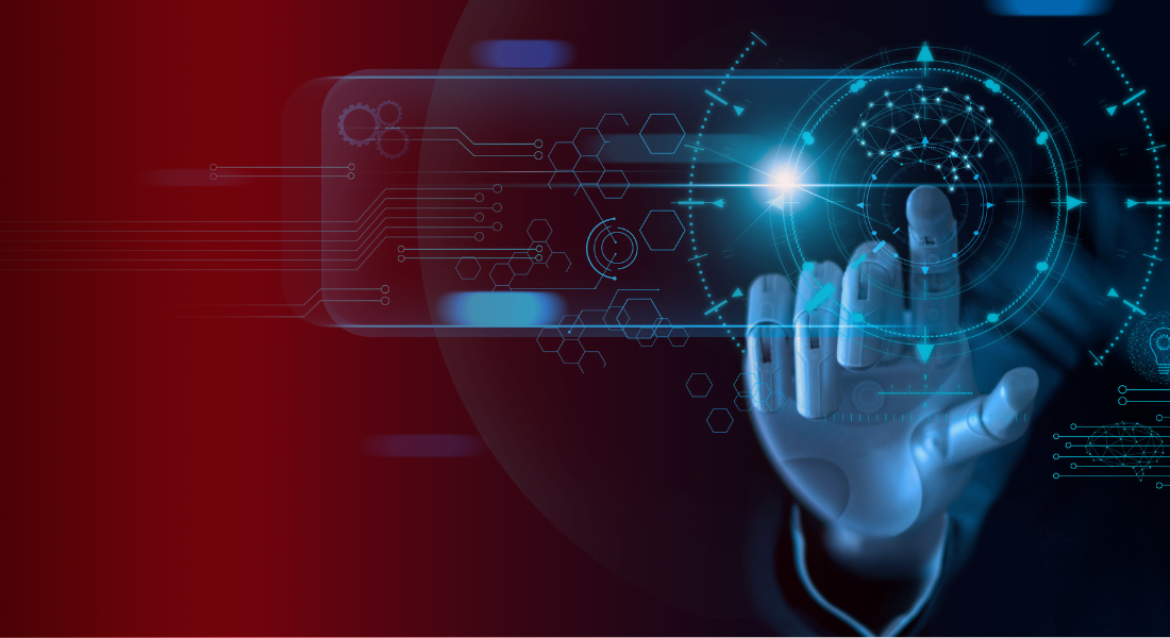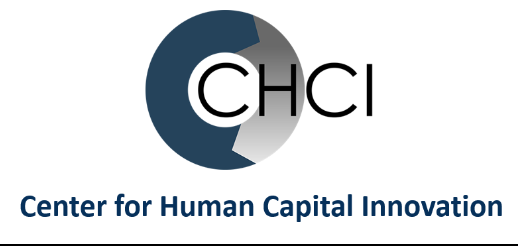
AI is a Double-Edged Sword: Opportunities and Challenges
In November 2022, OpenAI released ChatGPT 3.5 to the world, defining a moment in artificial intelligence and forever changing both our current technological landscape and the idea of work itself.
Using breakthroughs in language processing and neural networks, a machine learning process similar to how a brain functions, GPT 3.5 and its successors reveal AI’s immense potential to alter organizations and society. AI can now generate human-like text, answer complex questions, diagnose illnesses, create video, and even construct art and music, all of which is cause for both excitement as well as concern.
The Evolution of AI
The journey of AI has been a path of incremental achievements, from early victories in games like chess to wins in more sophisticated games like Go. However, the average person didn’t see these advances until GPTs brought AI into the mainstream. Suddenly, AI could be applied to writing, coding, and even tutoring, leading to deep discussions about its potential and the concept of a technological singularity—the point at which AI might surpass human intelligence.
“We are, for once, in a position where we might not be the preeminent intelligence on the planet—at least not for much longer.” – Jeremy Kahn, Mastering AI
Looking into the future, AI has the ability to revolutionize work across sectors, from healthcare to finance, by acting as “co-pilots.” For example, in hospitals, AI has started to play a significant role in streamlining administrative tasks such as scheduling and patient record management, allowing healthcare professionals to dedicate more time to patient care and complex decision-making. While AI systems handle mundane tasks, workers can focus their productivity on the responsibilities that require creativity and more of a human touch. However, these industries will need to plan for inevitable workforce shifts as some jobs will be displaced while others innovate and expand or change their roles.
Transforming Industries
Companies like Disney and Pfizer are already using AI to leverage their vast datasets, improving customer experiences and operational efficiencies. For example, Disney uses AI to analyze visitor data in real-time to optimize ride wait times and enhance the guest experience, while Pfizer employs AI to accelerate medical discovery by identifying potential drug candidates faster than traditional methods. Enhanced AI decision-making raises the importance of proprietary data, giving a competitive advantage to those companies that amass and use it. Nevertheless, especially in for-profit business, careful consideration must be made to ensure that innovations are transparently applied in an ethical manner.
With Advantages Come Dangers
With the benefits of AI come substantial risks. For example, AI’s potential to enhance human capabilities could lead to societal dependency, where individuals begin to rely heavily on technologies such as AI-driven navigation or translation services, ultimately resulting in a gradual loss of traditional skills like map reading or language proficiency. Relying too heavily on AI for cognitive tasks, such as calculations or data analysis, can diminish critical thinking and creative problem-solving abilities as individuals may become accustomed to accepting AI-generated solutions without question.
Additionally, the rise of AI-generated content threatens to blur trust and authenticity boundaries, as seen with deepfake videos and AI-written news articles, which can spread misinformation rapidly and challenge verification processes. This potential misuse of AI expands issues like misinformation and privacy breaches, as personal data used in training AI models can be exploited without user consent.
AI can also exacerbate social isolation both at work and in other environments through chatbots and virtual assistants. While these tools can support workers with unique needs, such as individuals with autism or social anxiety who may benefit from a less pressured form of communication, the lack of genuine human emotions in AI interactions presents challenges. For instance, employees interacting primarily with AI systems might impair their interpersonal skills, which could have long-term psychological impacts. And overreliance on AI interactions could affect team dynamics by reducing opportunities for genuine human connections and collaboration at work.
The Need for Ethical AI Governance
Given these challenges, there is an urgent need for ethical governance and thoughtful regulation. In his 2024 book Mastering AI, Author Jeremy Kahn emphasizes that while AI has the potential to uplift humanity, it presents significant threats if not managed responsibly. Kahn advocates for ethical decision-making frameworks when integrating AI to ensure it complements human responsibilities instead of replacing them.
Governments hold a critical role in crafting policies that address the socioeconomic impacts of AI. They need to collaborate with businesses to ensure that AI technologies benefit society equitably. Here’s how such policies can be developed and how individuals can contribute:
- Legislation and Regulation: Establish frameworks for responsible AI deployment, focusing on transparency, accountability, and ethics. These laws could mandate ethical AI use, data protection, and measures against AI bias.
- How You Can Contribute: Citizens and organizations can engage in public consultations or hearings when new AI-related laws are being proposed. Individuals can lobby elected officials by writing letters, participating in public forums, or joining advocacy groups that focus on ethical AI legislation.
- Retraining and Reskilling Programs: To mitigate job displacement, governments can develop programs aimed at reskilling workers whose jobs are at risk due to AI integration. These programs could focus on equipping workers with skills relevant to emerging sectors.
- How You Can Contribute: Businesses and individuals can partner with government initiatives by providing industry-specific insights into skills in demand within specific industries. Companies can also share successful retraining models that can be adopted more broadly. Additionally, advocating for public funding in education and retraining programs by participating in policy discussions can help shape these initiatives.
- Educational System Integration: Governments can reform educational policies by incorporating AI and digital literacy in curricula. This will both enhance learning experiences and prepare students for a technologically advanced world.
- How You Can Contribute: Educators and industry professionals can collaborate to develop curricula that include AI literacy. Advocate for integrating AI concepts in schools to prepare students for future job markets by speaking with state governments, school boards, and educational committees.
Business’s Role in Policy Formation
Businesses, as primary drivers of AI technology, must also take responsibility for its workplace and societal impact by crafting internal and external policies that support fair AI implementation. Here’s how such policies can be developed and how individuals can contribute:
- Corporate Policies on AI Use: Companies can establish internal policies that emphasize ethical AI deployment, including regular audits of AI systems for bias and fairness. These policies could also consider the broader impact of AI on the workforce.
- How You Can Contribute: Employees and managers can initiate discussions about AI ethics within their organizations, propose the formation of ethics committees, and draft policies that can serve as templates for others in the industry.
- Collaboration with Educational Institutions: Businesses can partner with schools and universities to support educational and training programs that are in sync with industry needs. This collaboration can provide students with hands-on experience and industry insights, as well as create a skilled future workforce for these businesses.
- How You Can Contribute: Business leaders can offer internships, sponsorships, and workshops through partnerships with educational institutions. Sharing resources and expertise helps align educational outcomes with real-world needs.
- Promoting Best Practices: Companies can document and share best practices for AI integration and workforce adaptation. By creating case studies and reports, they can guide other organizations in managing AI’s transition smoothly.
- How You Can Contribute: By participating in industry groups or forums that focus on AI ethics and policies, individuals can share successful strategies and advocate for policies that balance innovation with social responsibility.
Through active participation from both the public and private sectors, coupled with citizen engagement, comprehensive policies can be designed to ensure AI technologies equitably and sustainably serve the collective good..
Striking a Balance
AI stands at the cusp of becoming one of the most powerful technologies ever developed, with the potential to transform most industries. Its revolutionary ability to enhance productivity and democratize education offers a glimpse into a future of unlimited innovation. However, achieving this potential requires balancing ethical use and transparency with preserving core human skills. Leaders and their teams would benefit from considering the following:
- Maintain a Balanced Perspective: Recognize AI’s transformative potential and stay informed about its limitations and ethical considerations.
- Foster Critical Thinking and Problem-Solving Skills: Continuously hone these essential skills to complement AI’s capabilities, rather than relying solely on technology.
- Prioritize Ethical AI Use: Support and advocate for AI applications that emphasize transparency and responsible use.
- Preserve Human Values: Encourage the cultivation of empathy and creativity in work and educational settings, ensuring these values are integrated with AI development.
- Be Informed about AI Tools in Education: Stay updated on AI’s role in democratizing education and participate in discussions on how best to integrate these technologies in learning environments.
- Cautious Consumption of AI-Generated Content: Be aware that AI-generated content in articles, papers, and especially on social media and other platforms can be erroneous or deliberately manipulated. Approach it with a critical eye, and teach others to do the same.
- Engage in Conversations about AI Ethics: Participate in or support initiatives focused on the ethical implications of AI, contributing to a balanced dialogue on its future impact.
As AI continues to evolve leverage its capabilities and safeguard against its risks. This ongoing balance will determine AI’s role in the future of work, shaping how it will coexist with—and ultimately enhance—human intelligence.
What changes have you had to make in your job or industry to accommodate for AI? Have you had to create protections against it or has it improved your workflow?
Leave a comment below, send us an email, or follow us on LinkedIn.


Leave A Comment